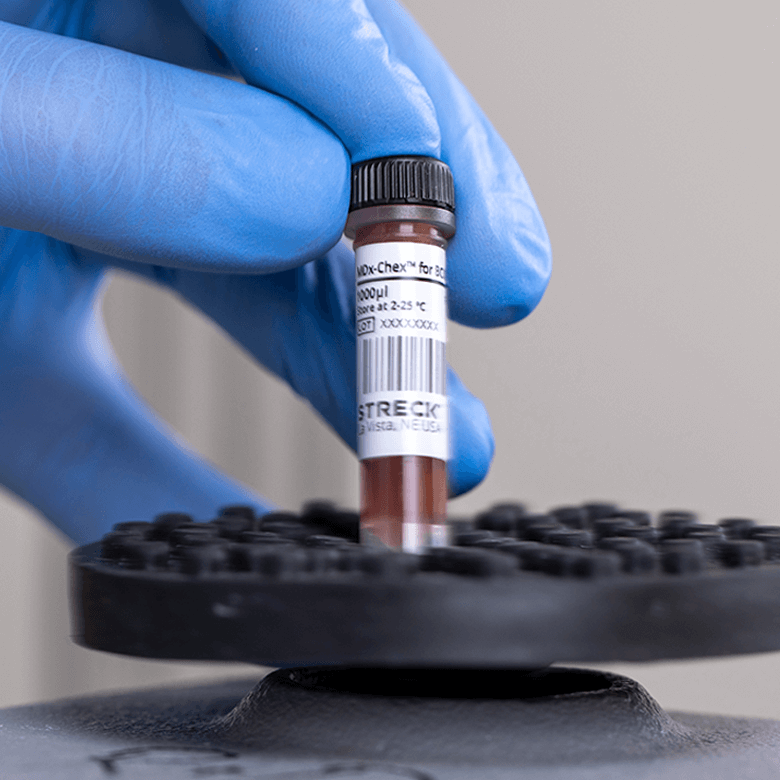New IQCP template for MDx assays
Topics Featured
A distinguished group of scientific organizations has revised the microbiology Individualized Quality Control Plan (IQCP) templates and created the first such template for the quality control of commercial, cartridge-based molecular test systems. Five years in the making, the joint group comprising members of the College of American Pathologists (CAP), the American Society for Microbiology (ASM), and the Clinical and Laboratory Standards Institute (CLSI) evaluated the use of sample-to-answer molecular diagnostics (MDx) tests in microbiology laboratories and obtained feedback from many other microbiology labs to create the template.

The format of the new molecular test template is similar to those currently in use by microbiology labs for MIC-based antimicrobial susceptibility testing and disk diffusion AST, among others involving QC of a commercial identification system. Following the previously introduced templates allows for a smoother incorporation of the molecular testing IQCP into a lab’s QC system, according to members of the group.
The accelerated pace of microbiology labs beginning molecular tests, new to many of them, required a comprehensive IQCP template to guide the labs on how to assess risk in areas not needed before and ways to identify and mitigate those risks. With cartridge-based or other sample-to-answer MDx platforms, the system hardware, software, reagents, laboratory environment and testing personnel are areas that need to be addressed in an IQCP.
One of the advantages of a comprehensive IQCP for these types of tests and platforms is that it may negate the need to perform daily QC, saving costs. However, an IQCP does not entirely eliminate the need for QC testing for molecular testing. CAP accreditation, for example, requires QC at least monthly, or defers to the manufacturer’s recommendation, whichever is more frequent. In addition, CAP mandates the use of external QC for each lot change of testing reagents or after system maintenance, repair, or software upgrades to verify the analytical process.
The manufacturers of sample-to-answer MDx microbiology platforms and tests have varied recommendations for the use of QC materials. For example:
- BIOFIRE® – defers these decisions to an individual laboratory’s quality protocols and its accrediting agency (CAP, American Proficiency Institute, etc.).
- Cepheid® – Defers to the lab’s local, state and federal accreditation agency procedures as applicable.
- Hologic® – Defers to Clinical Laboratory Improvement Amendments (CLIA) regulations

Streck’s MDx-Chex™ for BCID2 is the only control on the market that fulfills every requirement of these regulations for a qualitative, PCR-based sample-to-answer MDx microbiology test.
42 CFR 493.1256 – Standard: Control Procedures; Section (d) (3), and (d) (8) | ||||
Subsection | Standard | Streck | Main Molecular | ZeptoMetrix |
(3) (ii) | For qualitative procedures, a negative and a positive control is required | Yes | Yes | Yes |
(3) (iv) | Test systems that have an extraction phase, two controls are required, at least one capable of detecting errors in the extraction process | Yes | No | No |
(3) (v) | Each molecular amplification procedure, two controls materials are required and, if reaction inhibition is a significant source of false negative results, a control material capable of detecting the inhibition | Yes | No | No |
(8) | Test control materials in the same manner as patient specimens | Yes | No | No |
MDx-Chex for BCID2 is a patient-like full process control designed to validate the entire analytical process of the BIOFIRE BCID2 Panel. The control kit contains 43 bacteria, yeasts and antimicrobial resistance gene targets packaged in two separate vials, one for Gram (-) bacteria and one for the Gram (+) bacteria and yeasts, covering all targets tested on the BIOFIRE BCID2 Panel. The microorganisms are intact, inactivated and suspended in a matrix of stabilized red blood cells, white blood cells and blood culture media components, which is designed to challenge the lysis and purification processes just like a patient sample.
Provided in a comprehensive and easy-to-use format, MDx-Chex for BCID2 evaluates the entire analytical process of the assay, including cell lysis, DNA extraction, purification and removal of PCR inhibitors, as well as qPCR amplification, detection and analysis. MDx-Chex for BCID2 can be used for assay verification, to track lot-to-lot performance of the BCID2 assay and to reduce the occurrence of incorrect results due to instrument or assay failures.



New antibiotic fights antimicrobial resistant bacteria

